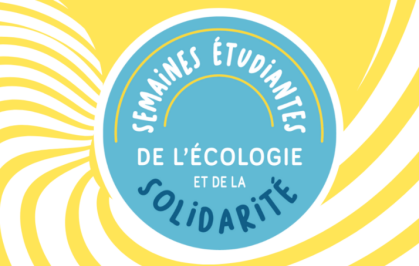 Aktualitete
Aktualitete 
Laws regarding foreign students have been amended!
Une nouvelle loi pour faciliter l’accueil des étudiants étrangers
Laws regarding foreign students have been amended! The new law published on the 7th of March 2016 is designed to facilitate the intake and integration of students who chose France as a study destination. The plurennial residence permit granted after one year of study was a long-standing demand from universities and student unions, and it is now active in all the country. Other innovation of the law is the talent passport, which facilitates the intake and stay in France of people with profile corresponding to the needs of current economy (young graduates, researchers, artists, high-level athlete, etc.).
Find below the new provisions to know of in order to best prepare your study stay:
1/ "Student" Residence Permit
You are planning to come to France to study? You must obtain a long-term visa acting as residence permit. The consular department must process your demand as early as possible.
- The VLS-TS: Long Term Visa used as Residence Permit
This visa is granted if you are studying in France and prove sufficient revenues. The visa allows you to work at a job in addition to your studies as long as it doesn't exceed 60% of yearly labour duration.
- Plurennial Residence Card (CSP)
The plurennial residence card is available at the end of your first year of studies in France. The It is valid from 2 to 4 years depending on your academic studies. It may be renewed if you continue your studies. The plurennial card will be extended to all types of students on November 1st, 2016.
- Provisional Residence Card (CST)
The provisional residence card is automatically granted in the following cases:
- You are staying for a duration exceeding 3 months as part of an agreement concluded between the French government and a higher education institution;
- You are eligible to the competition tests to register in a higher education institution;
- You benefit from a French government scholarship;
- You hold a French baccalauréat passed in an institution supervised by the Agency for French Education Abroad (Agence pour l'enseignement français à l'étranger, AEFE) or hold an equivalent degree and have studied for at least three years in a French institution abroad;
- You are a citizen of a country that has signed with France a reciprocal agreement in relation with student eligibility to a stay.
- "Trainee" Provisional Residence Card
Granted if you are carrying out an internship as part of an internship convention. Maximum duration is 6 months, non-renewable.
2/ Talent Passport
The plurennial residence card "Talent Passport" extends the mobility conditions for specific international talents. It may be issued to young specialised graduates, workers on a mission, researchers, company creators or designers of an innovative economic project, particularly as part of the French Tech Ticket programme, artists, high-level athlete, etc.
The card is issued for a maximum duration of four years for you and your family. The plurennial residence card "Passeport Talent (Famille)" (Family Talent Passport) gives you the right to have a job. The law determining the implementation conditions will be published on November 1st, 2016.
Find the detailed list of categories here
3/ Reasons to give in case of a decline of visa
If a student is declined the granting of an entry visa to France, consular or diplomatic authorities will have to issue acceptable reasons to this denial by November 1st 2016.
4/ Available appeals in case of visa denial
In case your visa demand has been rejected, you may appeal to the consulate by asking to reconsider its decision. Other possibility: you may bring the matter to the Commission of Appeal against Entry Visa Denial in France (CRV). This process is mandatory before appealing to an administrative judge. It is mandatory to file within two months following rejection, starting on the notification of refusal decision, whether written or not. You or any person able to prove his/her interest to refuse the decision or a duly authorised representative may bring the matter to the Commission (for example, a family member). The Commission may reject the appeal or ask the Minister of charge of immigration and Minister for Foreign Affairs to issue a visa.
5/ Job opportunities after a study stay
- Extended access conditions to the Provisional Residence Authorization (Autorisation Provisoire de Séjour, APS):
The Provisional Residence Authorization (Autorisation Provisoire de Séjour, APS) is issued for one year and offers extended access conditions to the labour market, provided you find a job in relation with your studies and that your pay exceed a threshold defined by a decree. Until now, this authorisation was only for holders of a degree of at least Master's level. Now, access to the APS is extended to holders of degrees present on the list defined by decree, which will be published in September 2016. It is also open to all individuals who wish to create their own company after their studies. During the validity of the APS, you may benefit from "salarié" (employee), "Passeport-talent" (Talent Passport) or "entrepreneur/profession libérale" (entrepreneur/freelance) card. "
- Labour market access is facilitated
If you are a holder of a degree at least equivalent to a Master's degree (or present on the list defined by decree) and find a job without consulting the APS after your studies: you may be eligible for the "salarié" (employee), "Passeport-talent" (Talent Passport) or "entrepreneur/profession libérale" (entrepreneur/freelance) card if there is a clear relation between your degree and your job and if your wage is consistent with the list published by decree from the Council of State.
- Creation of an "entrepreneur/profession libérale" (entrepreneur/freelance) card
If you work in a non-employee job, a single residence card "entrepreneur/profession libérale" (entrepreneur/freelance) is used instead of the "commerçant" (businessman) card and the "profession libérale" (freelance) card. This card is issued depending on your non-employee job, if the activity is financially viable and if it provides enough resources.
Examples of studies in France
- Student studying in first academic year of Licence course
- VLS-TS: 1 year (Licence 1)
- Then CSP: 2 years (Licence 2 and 3)
Note: one-year CST if necessary in case of repeat of a year
- Student in Master's course
- VLS-TS: 1 year (Master 1)
- Then CSP: 1 year (Master 2)
- Student in Doctorat (PhD) course
- VLS-TS: 1 year
- Then CSP: 2 years
- Student in first year of Licence, then studying in Master's then PhD course
- VLSTS: 1 year (Licence 1)
- Then CSP: 2 years (Licence 2 and 3)
- Then CSP: 2 years (Master 1 and 2)
- Then CSP: 3 Years (Doctorat -PhD-)
To find the laws:
- Law of March 7th, 2016 regarding the rights of foreign people in France
- Entry and stay code for foreign people and right of asylum (amended on November 1st 2016)
Photo credits © Philippe Devernay / MENESR





Commentaires
Vous devez être connecté pour laisser un commentaire. Connectez-vous.